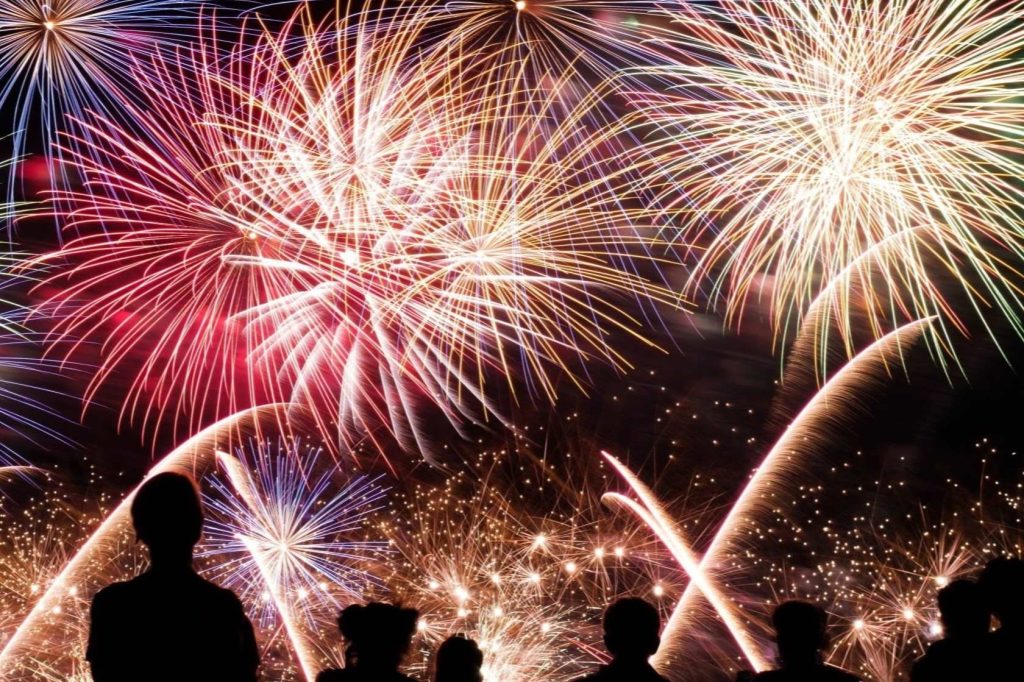Imagine standing at the crossroads of history and tradition, where every tick of the clock ushers in not just a new day but a whole new year. New Year's Day, celebrated on January 1, is more than just a day to hang up new calendars or nurse the aftermath of festive revelries. It's a day steeped in history, evolving through centuries from ancient civilizations to the modern world. The story begins with the Babylonians, who marked the new year with the vernal equinox, and travels through time to the Romans, who, under Julius Caesar's reform, pegged the start of the year to January 1 in honor of Janus, the god of beginnings. This day isn't just about popping champagne and fireworks; it's a mosaic of cultural and religious observances, a testament to humanity's enduring hope for renewal and betterment. From the Julian to the Gregorian calendar, the celebration of New Year's Day has been a constant, a thread connecting us to our ancestors, reminding us to look back with gratitude and forward with optimism.
Key Takeaway
Day Activities
-
Morning Parade: Kick off New Year's Day with a vibrant parade, a tradition in many cities. Spectators line the streets early, coffee in hand, to watch floats, bands, and performers usher in the new year with a bang. It's a communal celebration that brings together folks from all walks of life, setting a tone of unity and excitement for the year ahead.
-
Resolution Rituals: Post-parade, many engage in the time-honored practice of jotting down resolutions. This activity often takes place in the cozy confines of one's home or at a local café, surrounded by friends and family. It's a moment of reflection, where past year's lessons and next year's hopes are penned with earnest intentions, symbolizing a fresh start.
-
Feast and Festivities: As the day progresses, gatherings and feasts become the centerpiece of celebration. Special meals, believed to bring luck and prosperity, are shared among loved ones. From grand dinners to casual potlucks, the essence of these meals is gratitude and togetherness, wrapping up New Year's Day on a note of warmth and communal joy.
Why We Love This Day
-
Fresh Starts and New Beginnings: Who doesn't love a chance to hit the reset button? New Year's Day symbolizes a fresh start, offering everyone the opportunity to set new goals, dream big, and leave past mistakes behind. It's like getting a brand new notebook with none of the pages scribbled on—full of potential and promise. This day encourages us to look forward with optimism, making resolutions to improve ourselves and our lives. Whether it's deciding to eat healthier, exercise more, or learn a new skill, New Year's Day is all about embracing the possibility of change and growth.
-
Global Celebrations and Unique Traditions: Around the world, folks welcome the new year in a kaleidoscope of ways, each more fascinating than the last. From the fireworks lighting up Sydney's harbor to the ball drop in New York City's Times Square, every corner of the globe has its own unique way of ringing in the new year. Some cultures have traditions like eating 12 grapes at midnight for good luck in Spain or jumping off chairs in Denmark. These diverse customs not only add fun and excitement to our celebrations but also connect us to cultures far and wide, reminding us of our shared hopes for the future.
-
Reflection and Connection: Besides the parties and the countdowns, New Year's Day holds a deeper meaning. It's a time for reflection, a moment to look back at the year gone by and cherish our achievements while learning from our setbacks. It's also a day for connection, reaching out to loved ones, and sharing hopes for the year ahead. Many of us make calls, send messages, or even write heartfelt letters to show we care. In this hustle and bustle of life, New Year's Day gives us a reason to pause, reflect, and connect with those who matter most.
Past & Future Dates
| Month | Day | Year |
|---|---|---|
| JANUARY | 1 | 2022 |
| JANUARY | 1 | 2023 |
| JANUARY | 1 | 2024 |
| JANUARY | 1 | 2025 |
| JANUARY | 1 | 2026 |
| JANUARY | 1 | 2027 |
| JANUARY | 1 | 2028 |
FAQ
Who decided January 1 was New Year's Day?
The transition to January 1 as the start of a new year wasn't flipped like a light switch. After many seasons misaligned, Pope Gregory XIII stepped in. His adoption of the Gregorian calendar in 1582 was a game-changer, setting January 1 in stone as the go-to date for New Year's Day. This move was all about fixing the Julian calendar's time-keeping mess-ups.
Why do we celebrate January 1st as a New Year?
Back in the day, or more precisely in 46 BCE, Caesar found himself adding 67 extra days to that year. Why? He aimed for a fresh start on January 1, 45 BCE. Picking January 1 was a tip of the hat to Janus, the Roman God of beginnings. Cool fact about Janus: he's got two faces, one peeking into the past, the other eyeing the future. Quite fitting, isn't it?
What countries celebrate New Year's on January 1st?
Several places stick to the revised Julian calendar, keeping in step with the Gregorian calendar's beats. Nations like Bulgaria, Cyprus, Egypt, Greece, Romania, Syria, and Turkey all ring in both the religious and civil New Year's festivities on January 1. Talk about synchronizing celebrations!
Who changed the date of New Year to 1st of January?
Enter Pope Gregory XIII, calendar innovator extraordinaire. In 1582, he wasn't just patching up the calendar's leap year loophole; he was bringing January 1 back to its rightful place as the launchpad for the New Year. Thanks to his Gregorian calendar, we mark our yearly fresh start on January 1.
